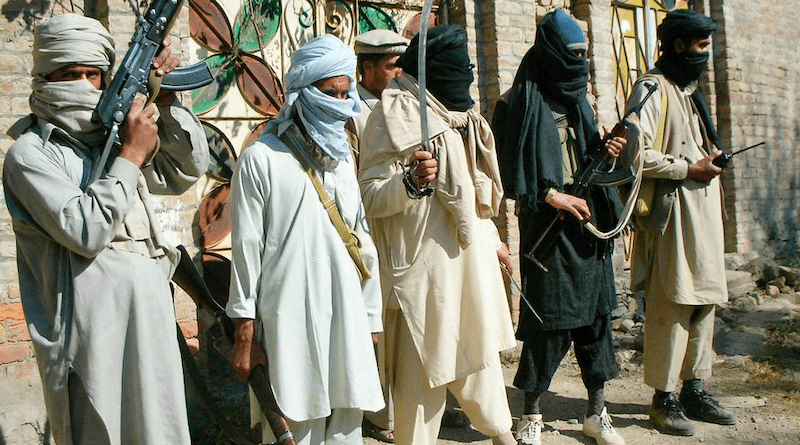Tehrik-I-Taliban Pakistan (TTP): Unraveling The Complex Web Of Regional Threats – OpEd
Tehrik-i-Taliban Pakistan (TTP) stands as a stark reminder of the persistent challenges that not only threaten Pakistan but also have broader implications for regional security. Emerging in the early 2000s as a response to Pakistani military operations in the tribal areas bordering Afghanistan, the TTP has evolved into a multifaceted and potent force. This article delves into the intricate layers of the TTP conundrum, exploring its background, internal threats to Pakistan, regional implications, ideological underpinnings, global links, counter-terrorism efforts, humanitarian impact, and the future outlook of this resilient militant group.
The roots of TTP trace back to an alliance of militant factions united in their opposition to the Pakistani state’s military actions. The group’s leadership, drawn from various tribal regions, articulated a narrative that blended local grievances with a broader jihadist ideology. Over time, the TTP’s organizational structure and objectives have evolved, adapting to changing circumstances and maintaining a symbiotic relationship with the Afghan Taliban and Al-Qaeda.
TTP’s threats to Pakistan are multi-faceted, posing challenges to the country’s internal security fabric. The group’s asymmetric warfare tactics include targeted attacks on military and security forces, bombings in civilian areas, and attempts to destabilize the government. This internal strife has not only claimed countless lives but has also created an environment of fear and uncertainty.
The TTP’s activities transcend national borders, contributing to regional instability. Collaborating with other militant groups, the TTP engages in cross-border activities that strain diplomatic relations and hinder efforts towards regional cooperation. The porous border between Pakistan and Afghanistan provides the TTP with the flexibility to exploit regional fault lines, making it imperative for neighboring nations to address this shared security concern collaboratively.
TTP’s Ideological Agenda
Central to TTP’s appeal and resilience is its ideological agenda rooted in a radical interpretation of Islam. The group seeks to impose Sharia law and uses this narrative for recruitment, propaganda, and justifying its violent actions. Understanding the ideological underpinnings of the TTP is essential for developing comprehensive counter-terrorism strategies.
TTP’s links to international jihadist movements, particularly Al-Qaeda, contribute to the propagation of a global jihadist ideology. The group’s involvement in global networks raises concerns beyond the immediate regional context. Examining these connections is crucial for addressing the broader challenge of transnational terrorism.
Pakistan has implemented various strategies to counter the TTP threat. Military operations, intelligence-led initiatives, and socio-economic development programs in affected areas have been part of Pakistan’s multifaceted approach. International cooperation, especially with Afghanistan, is crucial in addressing the cross-border nature of TTP activities. Collaborative efforts, both within Pakistan and with neighboring countries, are essential to effectively combatting the TTP menace.
Humanitarian Impact
Beyond the security realm, TTP’s activities have profound humanitarian consequences. The group’s attacks have displaced populations, disrupted essential services, and led to human rights abuses. The humanitarian impact extends to education, healthcare, and economic activities in the affected regions, exacerbating the challenges faced by local populations.
As the region grapples with the TTP menace, it is imperative to assess the group’s adaptability and resilience. Potential scenarios, including the role of regional and global actors, must be considered. A sustained, comprehensive effort, encompassing security measures, diplomatic initiatives, and socio-economic development, is crucial to addressing the TTP threat effectively. The international community’s commitment to supporting Pakistan and its neighbors in this endeavor is paramount.
Conclusion
In conclusion, TTP remains a significant threat with far-reaching implications for Pakistan and the broader region. Effectively countering this multifaceted challenge requires a nuanced understanding of its various dimensions. Collaborative efforts, both domestically and internationally, are essential for crafting a comprehensive strategy that addresses the root causes of militancy, ensures regional stability, and upholds the principles of peace and security. The path forward demands vigilance, cooperation, and sustained commitment from all stakeholders involved.

